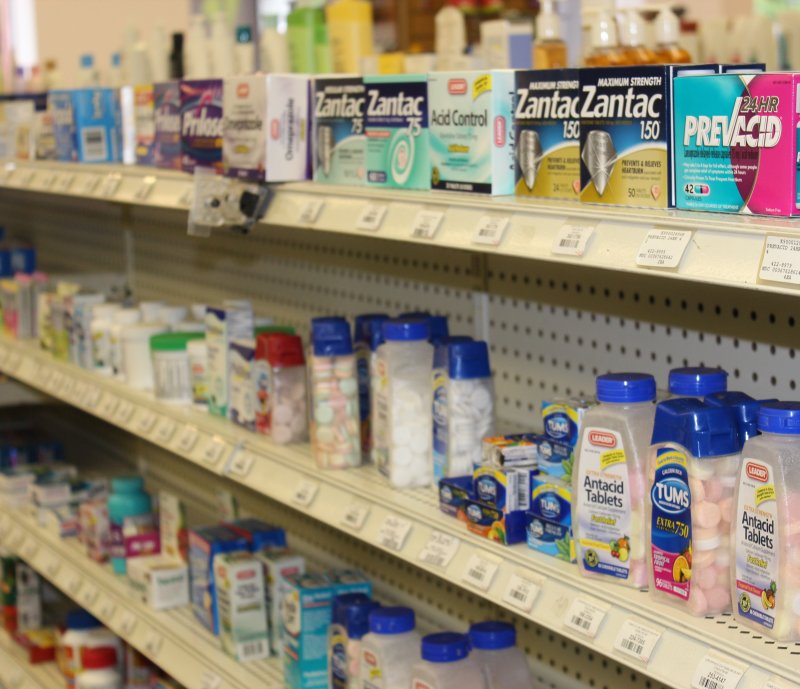In a clinical trial, esophagal cancer's progress was slowed by people taking aspirin with acid reducers. File Photo by Billie Jean Shaw
June 5 (UPI) -- Researchers have found in a phase 3 clinical trial that a combination of aspirin and an acid reducer can slow the spread of esophageal cancer.
The ASPECT trial, the findings from which were presented Monday at the American Society of Clinical Oncology Annual Meeting in Chicago, determined people with Barrett's esophagus benefited from a combination of the acid-reducing medicine esomeprazole and low-dose aspirin.
In a randomized clinical trial, the drug combination moderately reduced the risk for high-grade displasia, a pre-cancerous lesion, or esophageal cancer itself if taken for at least seven years.
"Based on these data, we believe people with heartburn should talk with their doctor about their risk of Barrett's esophagus, but they should not self-medicate with these medications," lead study author Dr. Janusz Jankowski, deputy vice chancellor at the Royal College of Surgeons Ireland, said in an ASCO press release.
Barrett's esophagus affects around 5.6 percent of the population, according to a study published by the National Institutes of Health.
It has estimated there is a 10 percent lifetime risk of someone with Barrett's esophagus developing esophageal cancer, according to the American College of Gastroenterology. The five-year rate of cancer survival is 19.2 percent, according to the the National Cancer Institute's Surveillance, Epidemiology and End Results.
In gastroesophageal reflux disease, or GERD, acid tends to damage the squamous mucosa lining the esophagus.
In the trial, 2,563 patients from from Canada and Britain were recruited starting in 1999. They were given 20 or 40 milligrams of Nexium -- the brand name for esomeprazole -- twice daily, with or without aspirin.
For eight to 10 years, they continued the regime. Of those patients, 313 developed cancer, Barrett's worsened or they died.
Researchers found the high dose of acid suppressant had a better result than a low dose. Taking aspirin with the high-dose proton pump inhibitor had a 20 percent overall reduction to risk, while trial results showed a statistically insignificant difference between taking aspirin alone or not at all.
About 1 percent of patients reported experiencing a serious adverse side effect during treatment, and the most common side effect was diarrhea.
"We hope that the National Institute for Health and Care Excellence in the UK and national bodies in other countries will consider our findings when developing guidelines for esophageal cancer prevention," Jankowski said.
Further research is needed with a more diverse group of participants, with the researchers noting that the trial was conducted in five countries with mostly white populations.















